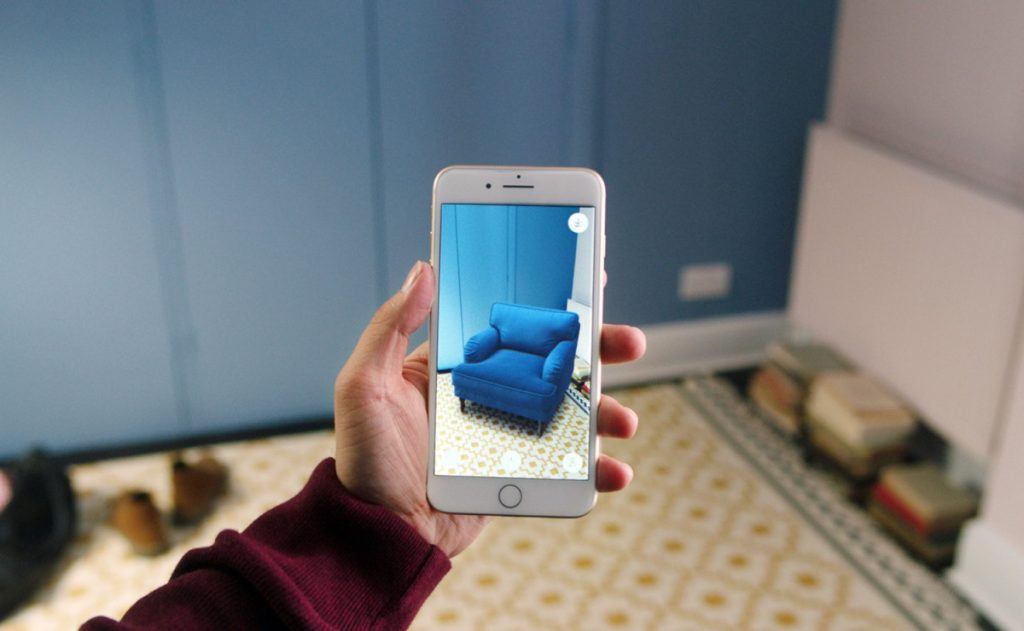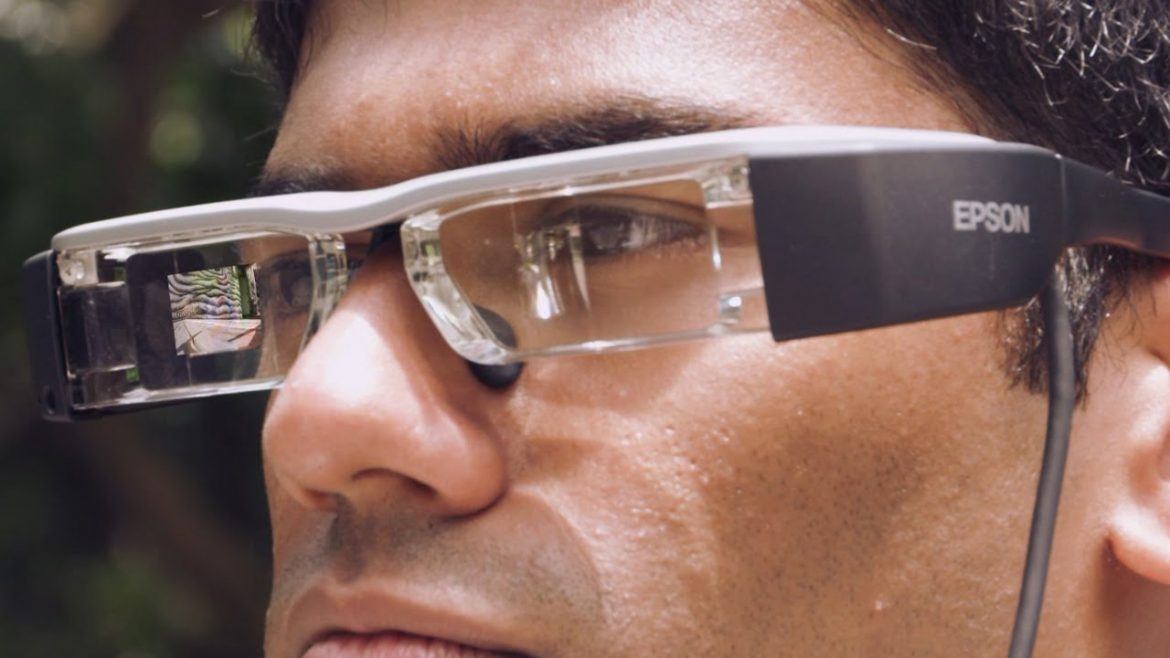Epson has a new pair of augmented reality glasses on the market — and while they’re not meant for everyday wear, they’re still supposed to be more convenient than their predecessors. The Moverio BT-30C glasses connect to an Android smartphone or a Windows PC over USB-C, unlike earlier Epson Moverio products, which plugged into a custom Android controller box. They cost $499, and they’ll ship in June of this year. Moverio is a relatively old augmented reality brand; its BT-100 glasses launched in 2011, before Google Glass or the Microsoft HoloLens. The BT-30C glasses couldn’t pass for normal eyewear — they’re chunky and still heavy at 95 grams. They also aren’t as technically sophisticated as the HoloLens or Magic Leap One, which project semi-realistic images into real space. The glasses essentially pin screens in mid-air and let you control them with a phone.
Epson Moverio product manager Eric Mizufuka doesn’t see AR as a mass-market industry just yet — and Epson isn’t banking on mainstream adoption within the next three to five years. Like many AR manufacturers, it sells a lot of its glasses to businesses, which use them as hands-free computing devices for workers. But it’s pushed to reach a broader audience as well. Its glasses are popular with drone enthusiasts, who use them to see a point-of-view video feed for flying.
The National Theatre in London lets patrons with hearing loss reserve a pair of Epson Moverio glasses, projecting subtitles for plays. Even if people don’t personally buy glasses, they might encounter them in a theater or a guided museum tour.

Now, Mizufuka says Epson wants to “get our foot in the door” of consumer markets with the BT-30C glasses. It’s pitching them to people who want a portable, private screen that runs off a familiar phone or PC. And it’s offering them at a cheaper price than existing products like the BT-300 That still doesn’t make the BT-30C glasses a mainstream product, but it could definitely make them a little more appealing to the average person.

It could also provide a preview of how other companies will approach consumer AR — a field that Apple, Google, Facebook, and many other tech giants see as the future of computing.
Image Source:
- https://i.ytimg.com/vi/XYEUAU40Zrw/maxresdefault.jpg
- https://i.ytimg.com/vi/2Bd5F1Ot97c/maxresdefault.jpg
- https://cdn-images-1.medium.com/max/1200/1*3F8SgP5Im17Kq9yPvy5rpA.jpeg






